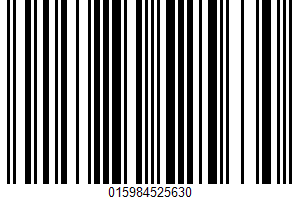Baby Muffins - 160 calories
Manufacturer Other
Product Information and Ingredients
Baby Muffins is manufactured by Other with a suggested serving size of 45 GRM (45 g) and 160 calories per serving. The nutritional value of a suggested serving of baby muffins includes 35 mg of cholesterol, 0 mg of sodium, 20 grams of carbohydrates, 0 grams of dietary fiber, 12 grams of sugar and 2 grams of proteins.
The product's manufacturer code is UPC: 015984525630.
Calories from fat: a total of 50.63% of the total calories in this suggested serving come from fat. Try to consume less than 10 percent of daily calories from saturated fats.
Ingredient List
- Sgr
- Enrichd Blch Wheat Flr (wheat Flr
- Niacin
- Rdcd Irn
- Thiamn Mononitrte
- Riboflvn
- Folc Acd) Eggs
- Sybn Ol
- H20
- Wild Bluebrries
- Mdfd Fd Strch
- Whey
- Levng (bkng Sda
- Sodm Alumnm Phospte
- Propylene Glycl Monodiestrs Of Fatty Acds
- Monodiglycrids
- Sodm Stroyl Lctylte
- Dxtrose
- Crn Strch
- Triclcm Phosphte
- Ntrloartfcl
- Flvrs
- Wheat Strch
- Alpa Tocophrols
- Silicn Diohide
- Ctrc Acd Potssm Srbte,

Nutrition Facts
Serving Size 45 GRM (45 g)
| Amount Per Serving | ||
|---|---|---|
| Calories 160 | Calories from Fat 81 | |
| % Daily Value* | ||
| Total Fat 9g | 6% | |
| Saturated Fat 1.5g | 3% | |
| Trans Fat 0g | ||
| Cholesterol 35mg | 5% | |
| Sodium 0mg | 0% | |
| Total Carbohydrate 20g | 3% | |
| Dietary Fiber 0g | 0% | |
| Sugars 12g | ||
| Protein 2g | ||
| Vitamin A 0% | Vitamin C 0% |
| Calcium 0% | Iron 0% |
* Percent Daily Values are based on a 2,000 calorie diet.
Nutrition Facts
Serving Size 100g (about 3.52 oz)
| Amount Per Serving | ||
|---|---|---|
| Calories 356 | Calories from Fat 180 | |
| % Daily Value* | ||
| Total Fat 20g | 14% | |
| Saturated Fat 3.3g | 7% | |
| Trans Fat 0g | ||
| Cholesterol 78mg | 12% | |
| Sodium 311mg | 6% | |
| Total Carbohydrate 44.4g | 7% | |
| Dietary Fiber 0g | 0% | |
| Sugars 27g | ||
| Protein 4g | ||
| Vitamin A 0% | Vitamin C 0% |
| Calcium 0% | Iron 0% |
* Percent Daily Values are based on a 2,000 calorie diet.
Baby Muffins Nutritional Value
| Nutrient | Suggested Serving 45 GRM (45 g) | Standard Serving 100g |
|---|---|---|
| Energy | 160 kcal (4%) | 356 kcal (8%) |
| Protein | 2 g (2%) | 4.44 g (4%) |
| Total Lipid (fat) | 9 g (6%) | 20 g (14%) |
| Carbohydrate, By Difference | 20 g (3%) | 44.44 g (7%) |
| Fiber, Total Dietary | 0 g (0%) | 0 g (0%) |
| Sugars, Total | 12 g (22%) | 26.67 g (48%) |
| Sodium, Na | 140 mg (3%) | 311 mg (6%) |
| Fatty Acids, Total Saturated | 1.5 g (3%) | 3.33 g (7%) |
| Fatty Acids, Total Trans | 0 g (0%) | 0 g (0%) |
| Cholesterol | 35 mg (5%) | 78 mg (12%) |
Calories Burn off Time
How long would it take to burn off Other Baby Muffins with 160 calories? A brisk walk for 35 minutes, jogging for 16 minutes, or hiking for 27 minutes will help your burn off the calories in baby muffins.
Burn off time varies based on your weight, physical activity and exercise intensity. The following physical activity table contains an estimated burn off time for a person weighting 154 lbs.
| Physical Activity | Burn Off Time |
|---|---|
| Bicycling - 10 mph or less | 33 minutes |
| Dancing | 29 minutes |
| Golfing | 29 minutes |
| Hiking | 27 minutes |
| Light Gardening | 29 minutes |
| Stretching | 53 minutes |
| Walking - 3.5 mph | 35 minutes |
| Weight Training - light workout | 44 minutes |
| Aerobics | 20 minutes |
| Basketball | 22 minutes |
| Bicycling - 10 mph or more | 16 minutes |
| Running - 5 mph | 16 minutes |
| Swimming | 19 minutes |
| Walking - 4.5 mph | 21 minutes |
| Weight Training - vigorous workout | 22 minutes |
Footnotes
Percent daily values are based on a 2,000 calorie reference diet. Factors like age, gender and level of physical activity may affect your daily required values.
The editorial opinions regarding food value or quality in this website are given without warranty, and are not intended to replace medical advice or a nutritionist guidance.
Dietary Recommendations
A healthy eating pattern that accounts for all foods and beverages within an appropriate calorie level could help achieve and maintain a healthy weight and reduce the risk of chronic disease. Healthy eating habits include the following:
- Vegetables from all subgroups, including dark, green, red and orange vegetables and also beans and peas
- A variety of whole fruits
- Grains with at least half of which are whole grains
- Low or fat free dairy products, including milk, yogurt, cheese and/or fortified soy beverages
- Protein foods, including seafood, lean meats and poultry, eggs and nuts
- Oils with limited amounts of saturated fats and trans fats, added sugars, and sodium
